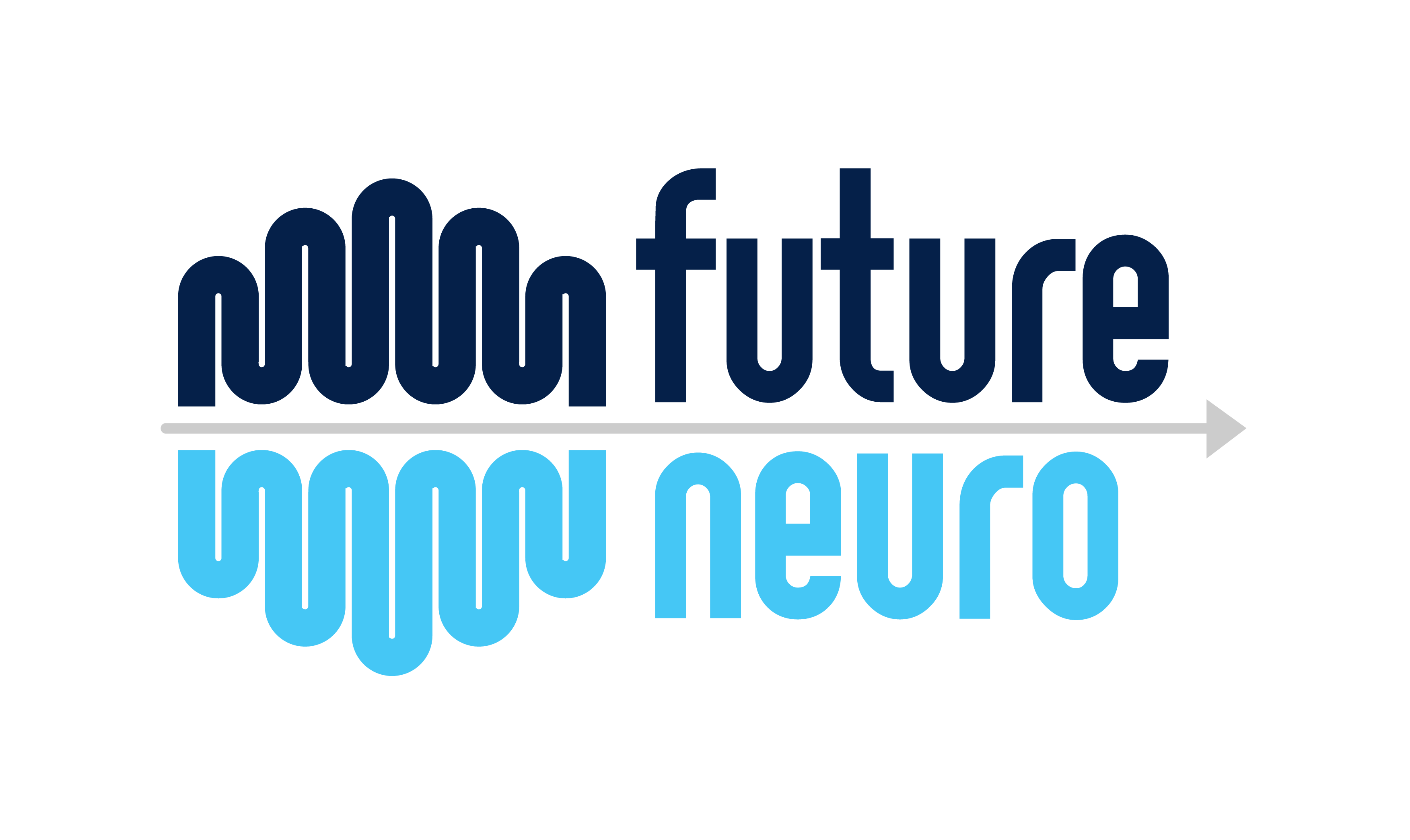Public Engagement
Education and Public Engagement
FutureNeuro’s research is focused on finding ways to diagnose, cure and empower patients living with neurological or brain-based conditions. We aim to enhance the societal relevance of our research by increasing active participation of citizens and stakeholders through public education, through public engagement and through encouraging engaged research practises across all stages of research and innovation.
Our Public Engagement vision is to “improve access to cutting edge neurological diagnostics, therapeutics and digital healthcare solutions outcomes for people living with neurological conditions while also positively influencing neurological literacy, health policy and health service provision for the public through impactful public engagement, engaged research and effective public communications.”
Towards this vision, we have developed and delivered an Education and Public Engagement (EPE) programme, tailored to engage our key audiences 1) primary, secondary and third levels students 2) communities impacted by neurological disease and the public and 4) the research community.
Building Science Capital in Schools
Across the broad educational setting, our researchers engage with students and their teachers to develop brain health knowledge, build capacity about neuroscience and inspire students to consider careers as scientist and researchers. We are particularly committed to encouraging participation by marginalised groups and achieving gender balance in STEM. We seek bi-directional and collaborative initiatives to grow knowledge and skills whilst reducing stigmas associated with neurological conditions. Here is a sample of some initiatives:
For Primary School Students:
Fantastic DNA
Our Fantastic DNA programme is designed to build science capital in early-school years in a fun and engaging manner and following best pedagogic practice. Delivered under the umbrella of Cell Explorers, a NUIG-based science education and public engagement programme, our researchers deliver Fantastic DNA workshops in person or on-line to schoolchildren, many of whom are meeting a scientist for the first time.
“The interactive manner of the demonstration via Zoom was an excellent alternative to the face – to – face option. The quality of materials that were provided was excellent too. Being able to speak with the neuroscientists enhanced the experience and made science, in general, more accessible to the children.” 4th class teacher, Co Louth.
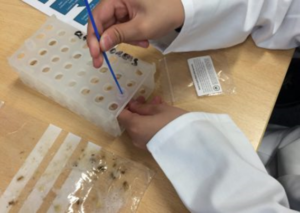
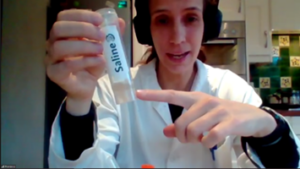
FutureNeuro Team Leader Franziska Walker presents on-line
For Second Level Students and Teachers
#BrainMatters Projects
We have partnered with SciFest Ireland to encourage students to develop Brain Health and Brain research projects as part of National Science Week. In 2022, our researchers visited schools in Dublin, Leitrim and Clare to talk about their research and present a #BrainMatters project award.
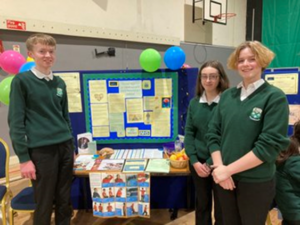
Students from Drumshanbo Vocational School exhibit their Brain Health Initiative at SciFest for National Science Week.
Read more about BrainMatters projects here.
Brain Health and Neurological Diseases Webinars.
FutureNeuro Researchers are teaming up with Educational Organisations to co-host a series of Brain Health and Neurology Webinars and to engage the participants in conversations about their research. These collaborative initiatives are designed to educate, equip and empower the general public to become engaged in our research and bridge the gap between patients/people with lived experience of neurological conditions, their caregivers, clinicians, neuroscientists and the public.
Read more about Brain Health and Neurological Diseases Webinars here.
For Third Level Students
FutureNeuro Summer School
Each year, we invite undergraduate students from relevant disciplines to apply for a funded 6-8 week summer internship under the supervision for FutureNeuro investigators. The goal is encourage graduates to consider neuroscience as a next-career step and generate data and the basis for a potential PhD project.
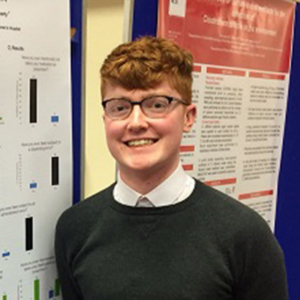
Dr Jack Banks who completed his eHealth PhD with FutureNeuro in 2022 following his summer internship in 2019.
Dr Daniela Tropea (TCD) ran the ‘Biology of Brain Disorders Summer School’ in 2019, attended by 29 Undergraduate students from across Europe, to increase awareness of FutureNeuro and Ireland as a potential next research career move. We hope to support similar events in the future.
Partnering with Community Groups
We works closely with patient advocate and community groups to support joint education and public engagement campaigns. Examples of organisations we work with include the Neurological Alliance of Ireland, Epilepsy Ireland, MS Ireland, Dravet Ireland and Irish Motor Neuron Association of Ireland (IMNDA). Our scientists and clinician scientists provide evidence-based information and, through bidirectional engagement, we gain valuable lived experience to inform and improve our research.
Examples include:
Epilepsy in English Workshops
The Epilepsy in English on-line workshops, developed in partnership with Epilepsy Ireland, were designed to facilitate a dialogue between neuroscientists, clinicians, people living with epilepsy and their advocates on topics chosen by the epilepsy community. These topics were Temporal Lobe Epilepsy, Sudden Unexpected Death in Epilepsy (SUDEP), Gene Therapy and Using Technology for Self-monitoring).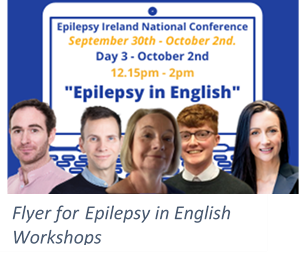 The online sessions were delivered by representatives from FutureNeuro, the clinical care network and patient advocates. Following best practice in engaged research, each session started with a presentation by a researcher or clinician followed by moderated breakout rooms and a wrap-up Q&A.
The online sessions were delivered by representatives from FutureNeuro, the clinical care network and patient advocates. Following best practice in engaged research, each session started with a presentation by a researcher or clinician followed by moderated breakout rooms and a wrap-up Q&A.
Read more about the Epilepsy in English Workshops here.
Virtual Run for CDKL5
CDKL5 deficiency disorder is a genetic disorder that causes seizures, developmental delay, and severe intellectual disability. This disorder is caused by a change (pathogenic variant) in the CDKL5 gene that is usually not inherited from either parent (de novo). Dr Omar Mamad is a FutureNeuro post-doctoral researcher who is committed to discovering new treatments for CDKL5 deficiency disorder. He is also a passionate athlete. Omar worked together with Jonna Malone from CDKL5 Alliance Ireland, and mother of Mia, to plan an information session on the disease for FutureNeuro researchers. He also organised a 5k for CDKL5 run to raise awareness and funds for the charity.
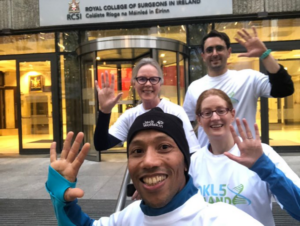
Dr Omar Mamad and the FutureNeuro Team completing the CDKL5 Run
More information to follow on planned initiatives for 2023:
- Local Sports Partnership Initiatives
- Brain Awareness Week
- World Brain Day
- World MS Day
- ILAE Congress
- Deliberative Dialogue on the Global Action Plan on Epilepsy and Other Neurological Diseases.
Accessible Content
FutureNeuro researchers endeavour to communicate their research to the public audience informed by best international accessibility standards and practice. We use different channels to communicate to a broad audience.
Short Youtube videos
These are created by our early career researchers to explain their research to school-children.
Ifeolutembi Fashina, a PhD Candidate, explores the human version of computer code that is responsible for all life – genes
Watch Science Week Ireland 2022 (Genes for Teens!) here.
Tammy Strickland, also a PhD candidate, explains, the teen brain and shows how it rewires itself as you become a teenager
Watch Science Week Ireland 2022 (Teen BRAIN Explained!) here.
RCSI MyHealth Lecture
Epilepsy – Journey to Diagnosis and the Role of Genomic Research
As part of the RCSI MyHealth Series episode, viewers hear from the perspectives of a parent, a clinician and a scientist. Colette Daly, a parent of a young man with epilepsy shares her experience of that journey and the importance of a diagnosis for her son and the whole family. Our panel also discusses the role of genomics in the diagnosis of some forms of epilepsy, and the potential genomic research may play in identifying new treatments.
Find more about this here.
Epilepsy in English
Epilepsy in English (EiE) is a stand-alone website and blog that translates complex publications and epilepsy research findings into easy to read articles. The EiE blog, started in 2018 by FutureNeuro MSCA fellow Dr Gareth Morris, has readers in over 22 countries world-wide.
Learn more here.
Building Researcher Capacity
The aim of our capacity-building programme is to equip our Research Team with the knowledge and skills in the theory, policy and practice of quality EPE. Researchers are further empowered to assess, plan, implement and evaluate their own EPE opportunities. Additional Supports include researcher training seminars and Drop in Clinics.
This EPE Tool-kit contains links to EPE planning, implementation and evaluation.
